
ISO 9001:2015 Certification
Who is ISO?
ISO is a network of the national standards institutes of 147 countries, on the basis of one member per country, with a Central Secretariat in Geneva, Switzerland, that coordinates the system.ISO occupies a special position between the public and private sectors. This is because, on the one hand, many of its member institutes are part of the governmental structure of their countries, or are mandated by their governement.
ISO 9000 Series History
1963 : MIL-Q 9858A (US Military)
1969 : DEF Standards (UK MOD)
1974 : AQAP Defence Standards
1979 : BS 5750 Pt 1,2,&3
1987 : ISO 9000 Series
1994 : ISO 9000 Revised & BS 5750 became obsolete
1996 : ISO 14001 : 1996 was published
1999 : OHSAS 18001 (Occupational Health & Safety Assessment Series)
2000 : ISO 9000 :2000 series was published
2004 : ISO 14001: 2004 was published
2007 : OHSAS 18001 (Occupational Health & Safety Assessment Series)
2008 : ISO 9001: 2000 was published
ISO 9000 Series Family
ISO 9001: 2008
The purpose of this standard is to provide a management system framework that enables the company to establish a management system aimed at enhancing customer satisfaction, continual improvement, and the assurance of product conformity to customer and applicable regulatory requirements.
ISO 9000: 2005
This standard defines terms used throughout ISO 9001 & 9004.
ISO 9004: 2000
This standard has been developed as one part of a consistent pair of quality management system standards. The standard includes a copy of ISO 9001: 2000 with guidelines for performance improvement against each clause. The standards are designed to be used together, but can also be used independently. The standard includes guidelines for self assessment.
ISO 19011: 2002
This standard provides guidelines of the principles of auditing, managing audit programmes, conducting quality and environmental system audits plus guidance on
ISO 9000 Series Key Points
Applicability to all product categories
Simple to use
Non Bureaucratic approach in the amount of documentation
Connection of QMS to the organisations processes
Requirement for continual improvement
Compatibility with ISO 14001 & OHSAS 18001
Process orientated structure
Emphasis on the role of top management
The concept of “permissible exclusionsâ€
Requirement to monitor customer satisfaction
Reference to Quality Management Principles
Consideration of legal and regulatory requirements (related to the product or service)
Establishment of measurable objectives
Determine effectiveness of training
Measurement of process and product
ISO 14001 2015 Certification
ISO standards are reviewed and revised on a regular cycle, typically every 5-10 years, and 2015 sees ISO 14001:2004 reaching the end of that review procedure. A draft international standard (DIS) was published, and after extensive review the final draft international standard (FDIS) was published in July. The ISO 14001:2015 standard was published in September 2015.
ISO 14001:2004 Certification
ISO 14001:2004 specifies needs for an environmental management system to allow an organization to develop and implement a policy and objectives which take into account legal needs and other needs to which the organization subscribes, and information about significant environmental aspects. It applies to those environmental aspects that the organization recognizes as those which it can control and those which it can influence. It does not itself state specific environmental performance criteria.
ISO 14001:2004 is applicable to any organization that wishes to establish, implement, maintain and progress an environmental management system, to assure itself of conformity with its stated environmental policy, and to demonstrate conformity with ISO 14001:2004 by
a) manufacture a self-determination and self-declaration, or
b) looking for confirmation of its conformance by parties having an interest in the organization, such as clients, or
c) looking for confirmation of its self-declaration by a party external to the organization, or
d) looking for certification/registration of its environmental management system by an exterior organization.
All the needs in ISO 14001:2004 are intended to be incorporated into any environmental management system. The extent of the application will depend on factors such as the environmental policy of the organization, the nature of its behavior, products and services and the location where and the conditions in which it functions.
ISO 18001:2007 Certification
OHSAS 18001 occupational health & safety
An occupational health and safety management system provides a framework for managing OHS responsibilities so they become more efficient and more integrated into overall business operations.
Health & Safety Policy
The main components of a health and safety policy fall under three heading.
The general policy statement
Organisation
Arrangements
Benefits of OHSAS 18001
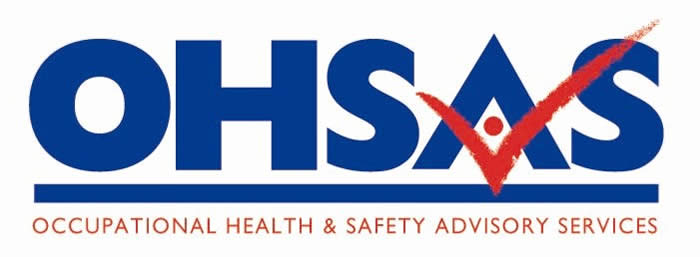
Compliance with legislation
Ownership of Health and Safety Issues
Nominal effort is required
Training needs are identified and realised
Reduce Costs
Ongoing improvement
Liabilities minimised
OHSAS 18001: 2007 STRUCTURE
1. SCOPE
2. NORMATIVE REFERENCES
3. TERMS AND DEFINITIONS
4. OH&S MANAGEMENT SYSTEM REQUIREMENT
4.1 GENERAL REQUIREMENT
4.2 OH&S POLICY
4.3 PLANNING
4.4. IMPLEMENTATION AND OPERATION
4.5. CHECKING
4.6. MANAGEMENT REVIEW
ISO 27001:2005 Certification
What is ISO 27001?
ISO 27001 is an international standard published by the International Standardization Organization (ISO), and it depicts how to handle information security in a company. The latest revision of this standard was published in 2013, and its full title is now ISO/IEC 27001:2013. The first revision of the standard was published in 2005, and it was developed based on the British standard BS 7799-2.
ISO 27001 can be implemented in any kind of organization, profit or non-profit, private or state-owned, small or large. It was written by the world’s best specialists in the field of information security and offers methodology for the implementation of information security management in an organization. It also allows companies to become certified, which means that an independent certification body has confirmed that an organization has implemented information security compliant with ISO 27001.
Advantage of establishing an ISMS:
Awareness of information security risks
Security of the assets according to the needs
Establishing business continuity through effective incident management
Competitiveness
Profitability
Corporate image
Legal and statutory compliance
History of the ISO/IEC 27001 ISMS:
BS7799:1995; part 1 issued
BS7799-2:1998; part 2 issued
BS7799-2:1999; part 2 revised
ISO/IEC 17799:2000; issued
BS7799-2:2001; part 2 improved
BS 7799-2:2002 : harmonized with the other management system standards , Plan-Do-Check-Act (PDCA) model intruduced (ISO 9001:2000 and ISO 14001:1996)
ISO/IEC 27001:2005 ; Information security management system; replaced BS 7799-2
ISO/IEC 27002:2005 ; Code of practice, replaced ISO/IEC 17799:2005
Principals of the ISO/IEC 27001 ISMS
ISO/IEC 27001 specifies the requirements for establishing,implementing, operating, monitoring, reviewing, maintaining and improving a documented ISMS within thecontext of the organization’s overall business risks. It specifies requirements for the implementation of security controls customized to the needs of individual organizations or parts thereof.
The process approach for information security management presented in the Standard encourages companies to emphasize the importance of:
understanding an organization’s information security requirements and the need to establish policy and objectives for information security;
implementing and operating controls to manage an organization's information security risks in the context of the organization’s overall business risks;
monitoring and reviewing the performance and effectiveness of the ISMS; and
continual improvement based on objective measurement.
ISO/IEC 27002:2005 provides implementation guidance that can be used when designing controls.
CONTENT OF THE ISO/IEC 27001:
0 Introduction
0.1 General
0.2 Process approach
0.3 Compatibility with other management systems
1 Scope
1.1 General
1.2 Application
2 Normative references
3 Terms and definitions
4 Information security management system
4.1 General requirements
4.2 Establishing and managing the ISMS
4.2.1 Establish the ISMS
4.2.2 Implement and operate the ISMS
4.2.3 Monitor and review the ISMS
4.2.4 Maintain and improve the ISMS
4.3 Documentation requirements
4.3.1 General
4.3.2 Control of documents
4.3.3 Control of records
5 Management responsibility
5.1 Management commitment
5.2 Resource management
5.2.1 Provision of resources
5.2.2 Training, awareness and competence
6 Internal ISMS
7 Management review of the ISMS
7.1 General
7.2 Review input
7.3 Review output
8 ISMS improvement
8.1 Continual improvement
8.2 Corrective action
8.3 Preventive action
Annex A (normative) Control objectives and controls
Annex B (informative) OECD principles and this International Standard
Annex C (informative) Correspondence between ISO 9001:2000, ISO 14001:2004 and this International Standard
ISO 27001:2013 Certification
ISO/IEC 27001:2013 is the international standard that describes best practice for an information security management system (ISMS). Accredited certification to ISO 27001 Certificate demonstrates that an organization is following global information safety best practices.
Re-released in 2013, ISO/IEC 27001 builds upon established foundations as the most widely documented international standard specially aimed at information security management. The acceptance of an Information Security Management System (ISMS) is a strategic decision driving the coordination of operational security controls across all of the organizations electronic and mental information resources.
ISO IEC 27001 2013 is an information security management standard. It defines a set of information security management requirements. The official complete name of this standard is ISO/IEC 27001:2013 Information technology - Security techniques - Information security management systems - Needs. These needs can be found in the following seven sections:
Context
Leadership
Planning
Support
Operation
Evaluation
Improvement
The ISO/IEC 27001:2013 (referred to as ISO 27001 for the purposes of this article series) is an international standard for launching, applying, operating, monitoring, reviewing, maintaining and humanizing an Information Security Management System (ISMS). ISO 27001 is a suitable management standard for all sectors of industry and commerce and is not limited to electronic information on computers. A common delusion is that ISO 27001 and information security in general is intended only to prevent hackers from gaining access to a computer or network.
The intention of this international standard is to support organizations launch and maintain an information security management system (ISMS). An ISMS is a set system used to manage and control information, risks in security as well as maintaining the integrity, protection and preservation and confidentiality of information. We expected this certification for its Operations, IT and MIS departments within its organization after passing an audit of its ISMS and consequently met the ISO/IEC 27001: 2013 needs.
Benefits of ISO 27001:2015 Certificate
Improved customer satisfaction that improves client retention
Keeps confidential information secure
Protects the company, assets, shareholders and directors
Manages and minimizes risk exposure
Permits you to ensure you are meeting your legal obligations
Supports you to comply with other regulations (e.g. SOX)
Provide you with a competitive advantage
Permits for secure exchange of information
Consistency in the delivery of your service or product
Provides clients and stakeholders with confidence in how you manage risk
Builds a culture of security
ISO 13485:2012 Certification
ISO 13485: 2012 is an international standard that represents the needs for a comprehensive quality management system for the design and manufacture of medical devices. Though it is tailored to the industry's quality system expectations and regulatory necessities, an organization does not require being actively manufacturing medical devices or their components to look for certification to this standard. ISO 13485: 2012 applies to the design, development, production, installation and servicing of medical devices. Compliance is a measure of your ability to meet customer and legal needs.
ISO 13485 is based on the ISO 9001:2015 procedure model approach and is a management systems standard specifically developed for the manufacture of medical devices. Its primary objective is to facilitate harmonized medical device regulatory needs.
The EN ISO 13485:2012 certification was awarded by the International Organization for Standardization, the world's largest developer and publisher of worldwide quality and safety standards. This certification outlines specific needs to establish and execute a structured quality management system for medical devices across all areas, from development to deliver.

CE Marking Certification
The letters "CE" are the acronym of French phrase "Conformité Européene" which literally means "European Conformity". The term primarily used was "EC Mark" and it was formally replaced by "CE Marking" in the Directive 93/68/EEC in 1993. "CE Marking" is now used in all EU official documents.

TS 16949 Certification
ISO/TS 16949 was jointly developed by The International Automotive Task Force (IATF) members and submitted to the International Organization for Standardization (ISO) for approval and publication.
TS 16949 are an internationally recognized Quality Management System specification for the automotive industry. TS 16949:2009 is the current version (last updated in the year 2009) of the standard that was developed for the Automotive Industry. It contains all of the requirements of ISO 9001 plus several additional requirements specifically for the Automotive Industry.
ISO/TS 16949:2009 aims for the development of a quality management system that provides for continual improvement, emphasizing defect prevention and the reduction of variation and waste in the automotive supply chain. ISO/TS 16949 applies to the design and development, production and, where relevant, the installation and servicing of automotive-related products.
ISO/TS 16949 is a quality management system standard for automotive related manufacturing companies. ISO/TS 16949 is a process-approach methodology with a focus on achieving customer satisfaction. This standard follows the outline of ISO9001:2000 with added automotive specific requirements.
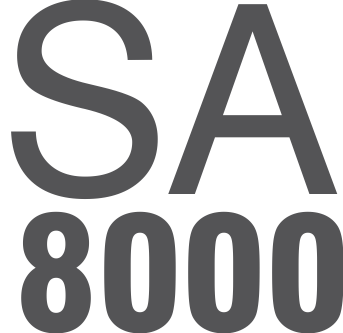
SA 8000 Certification
Social Accountability is the registered trademark of Certification and acknowledgment of SA 8000 activities in the organization, a company, branch, an area consistent with SA 8000 standards. Currently there is no official certification agency, but you can request prestigious organizations to audit, certify and issue SA 8000 certificate for your requirements.
Adopting SA 8000 certification means an organization must think the social impact of their operations in addition to the conditions under which their employees, partners and suppliers operate. It can be applied to any company, of any size, worldwide. Certifying your organization against SA 8000 with our audit will support you develop and progress social accountability across your operations. Working with our experienced auditors to put into practice the most internationally accepted place of work standard demonstrates social accountability when bidding for contracts and expanding your organization.
There are nine key areas to Social Compliance and SA8000, which are:
Child Labour
Disciplinary Practices
Forced Labour
Working Hours
Health & Safety
Compensation
Freedom of Association & Collective Bargaining
Management systems
Discrimination
Benefits of SA8000 Certificate
Enables you to demonstrate proper social accountability when bidding for international contracts or expanding locally to accommodate new business
exposure and achievable litigation
Proves your promise to social accountability and to treating your employees ethically and in compliance with worldwide standards
Helps your corporate vision and build and reinforce the loyalty of your employees, clients and stakeholders
Improves the management and performance of your supply chain
Allows you to make sure compliance with global standards and decrease the risk of negligence, public
ISO 22000:2005 Certification
What is ISO 22000:2005 Food Safety Management System?
ISO 22000, published on 1 September 2005, is an international standard designed toensure safe food supply chains worldwide and the first of a family on food safety management systems.
The standard has been developed within ISO/TC 34. technical committee by experts from the food industry, along with representatives of specialized international organizations and in close cooperation with the Codex Alimentarius Commission, the body jointly established by the United Nations’ Food and Agriculture Organization (FAO) and World Health Organization (WHO) to develop food standards. A major resulting benefit is that ISO 22000 will make it easier for organizations worldwide to implement the Codex HACCP (Hazard Analysis and Critical Control Point) system for food hygiene in a harmonized manner, which does not vary with the country or food product concerned.
ISO 22000 combines and supplements the core elements of ISO 9001 and HACCP to provide an effective framework for the development, implementation and continual development of a Food Safety Management System (FSMS).
ISO 22000:2005 is a food safety management for organizations involved in food chain. This standard specifies the needs for food safety management system where an organization in food chain needs to demonstrate its ability to control the food related hazards. Food safety is connected to the presence of food-borne hazards in food at the point of consumption. As the food safety hazards can occur at any stage of the food chain, adequate control throughout the food chain is important. Thus, food safety is making sure through the combined hard work of all the parties participating in the food chain.
Food Safety is necessary needs for a healthy nation therefore FSMS is the basic needs of the Healthy Nation, People and for a healthy society Failures in food supply can be unsafe and cost plenty. ISO has developed the ISO 22000 standard for the certification of food safety management systems. The standard is intended to provide security by making sure that there are no weak links in the food supply chain, and to achieve international harmonization in the field of food safety standards.
Food safety is a worldwide concern and public health is a sensitive subject having far-flung impact on trade and business. Traditionally, industry and regulators have depended on spot-checks of manufacturing conditions and random sampling of final products to make sure safe food. This approach, however, tends to be reactive, rather than preventive, and can be less capable than the new system. Over a period of time, a new management system for food safety has evolved as ISO 22000:2005.
ISO 22000:2005 Food Safety Management System Standard Series
ISO 22000:2005, Food safety management systems - Requirements for any organization in the food chain and its corrigendum ISO 22000:2005/Cor1:2006 give the basic requirements for a food safety management system to ensure food safety along the food chain, up to the point of final consumption.
ISO/TS 22004:2005, Food safety management systems - Guidance on the application of ISO 22000:2005 gives guidance on the use of ISO 22000, which is based on the principles of the Hazard Analysis and Critical Control Point (HACCP) system developed by the Codex Alimentarius Commission and is designed to be applied together with relevant standards published by that organization.
ISO 22005:2007, Traceability in the feed and food chain - General principles and basic requirements for system design and implementation gives the principles and specifies the basic requirements for the design and implementation of a feed and food traceability system.
ISO/TS 22003:2007, Food safety management systems - Requirements for bodies providing audit and certification of food safety management systems and ISO/IEC 17021:2006, Conformity assessment - Requirements for bodies providing audit and certification of management systems, have been developed for certification bodies and the accreditation bodies that approve them as competent. Certification of a food safety management system to ISO 22000 is not a requirement of the standard, but is one means of providing assurance that an organization has implemented a system for the management of food safety in line with its policy.
Who can implement ISO 22000:2005 Food Safety Management System?
Organizations in food chain, as under:
Food processors and manufactures,
Food retailers, storage facilities and transporters,
Producers of packaging materials,
Seed and feed producers,
Farmers
Food additive producers,
Primary procedures (Agriculture, Aquaculture, Horticulture, Dairy etc.)
Hospitality sector – Hotels, Restaurants, Catering institutes
Service providers to food establishments ie; pest control, stewarding, cleaning etc.
Producers of machinery, cleaning products and other materials in contact with food
Benefits of ISO 22000 Certificate
ISO 22000 help out Business, Government & Society.
ISO 22000 helps Organization to give safe food products to consumers.
ISO 22000 is a Scientific Approach
Make food safety responsibility of Food Chain parties.
Competitive edge
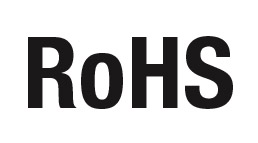
RoHS Certification
What Is RoHS?
The definition and aim of the RoHS directive is quite simple. The RoHS directive aims to restrict certain dangerous substances commonly used in electronic and electronic equipment.RoHS is often referred to as the "lead-free directive," but it restricts the use of the following six substances:
Lead (Pb)
Mercury (Hg)
Cadmium (Cd)
Hexavalent chromium (Cr6+)
Polybrominated biphenyls (PBB)
Polybrominated diphenyl ether (PBDE)
Total Quality Management
Total Quality Management (TQM) is a systematic approach designed to help businesses progress their practices to more predictably lead to a constantly high quality product. Training in TQM is more commonly available at certificate and graduate certificate levels, but master's degree programs also offer training in this business philosophy.
The total in TQM applies to the complete organization. Therefore, unlike an ISO 9000 initiative which may be limited to the procedures producing deliverable products, TQM applies to each activity in the organization. Also, unlike ISO 9000, TQM covers the soft issues such as ethics, attitude and culture.
The Total Quality Management Certification Test checks your information about the significant concepts, skills and techniques associated to the art of Total Quality Management. This test covers all the aspects of the art of Total Quality Management like meaning, concepts, foundation and principles of Total Quality Management, the quality management tools, implementation of Total Quality Management in an organization
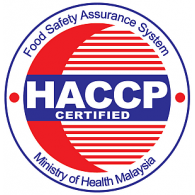
HACCP Certificate
The abbreviation HACCP stand for Hazard Analysis Critical Control Points. It is a Food Safety methodology that relies on the identification of Critical Control Points (CCP's) in food production and preparation processes. Closely monitored CCPs will ensure that food is safe for human consumption.
It avoids traditional "end product testing" and seeks to identify hazards and reduce risks throughout all stages from producer to plate.
The History of HACCP
The approach was originally derived from Engineering System's - "Failure Mode and Effect Analysis". It was further developed by Pillsbury / NASA for the American Space Programme. Hazard Analysis Critical Control Points reduced the risk of astronauts suffering from the effects of consuming contaminated food whilst in space. HACCP Principles are now promoted and incorporated into Food Safety Legislation in many Countries.
There are 7 principles of HACCP:
The HACCP principles consist of the following:
Identifying any hazards that must be prevented, eliminated or reduced to acceptable levels
Identifying the critical control points at the step or steps at which control is essential to prevent or eliminate a hazard or to reduce it to acceptable levels
Establishing critical limits at critical control points which separate acceptability from unacceptability for the prevention, elimination or reduction of identified hazards
Establishing and implementing effective monitoring procedures at critical control points
Establishing corrective actions when monitoring indicates that a critical control point is not under control
Establishing procedures, which shall be carried out regularly, to verify that the measures outlined in the above paragraphs
And, establishing documents and records commensurate with the nature and size of the food business to demonstrate the effective application of the measures outlined in the above paragraphs.
The total in TQM applies to the complete organization. Therefore, unlike an ISO 9000 initiative which may be limited to the procedures producing deliverable products, TQM applies to each activity in the organization. Also, unlike ISO 9000, TQM covers the soft issues such as ethics, attitude and culture.
The Total Quality Management Certification Test checks your information about the significant concepts, skills and techniques associated to the art of Total Quality Management. This test covers all the aspects of the art of Total Quality Management like meaning, concepts, foundation and principles of Total Quality Management, the quality management tools, implementation of Total Quality Management in an organization
IEC 17025 Certification
ISO/IEC 17025 was first issued in 1999 by the International Organization for Standardization (ISO) and the International Electro technical Commission (IEC). It is the single most important standard for calibration and testing laboratories around the globe. Laboratories that are accredited to this international standard have demonstrated that they are technically competent and capable to produce precise and accurate test and/or calibration data.
ISO/IEC 17025:2005 specifies the general necessity for the competence to carry out tests and/or calibrations, including sampling. It covers testing and calibration performed using standard methods, non-standard methods, and laboratory-developed methods.
Reasons Why ISO 17025 Is Important?
ISO 17025 is a regular and extensive review of a vendor’s quality management system.
ISO 17025 is not necessary. To enlarge trust, calibration labs volunteer to be reviewed by a third-party accreditation body based on their adherence to ISO 17025 standards.
ISO 17025 certifies that a lab has demonstrated an ability to produce correct tests and calibration data and has displayed excellence in technical and management competence. (It is silent, however, on the methods and processes that must be used to calibrate since it is device agnostic.
Benefits of ISO 17025 Certificate
Enhanced national and worldwide reputation and image of the laboratory.
Better control of laboratory operations and feedback to laboratories as to whether they have sound Quality Assurance System and are technically competent.
constantly improving data quality and laboratory effectiveness.
Potential enhance in business due to enhanced client confidence and pleasure.
Savings in terms of time and money due to decrease or elimination of the require for re-testing of products.
Clients can search and recognize the laboratories accredited by The Accreditation Member Body for their exact needs from their website or Directory of Accredited Laboratories.
Increase of confidence in Testing/ Calibration data and of personnel performing work.
Users of accredited laboratories will enjoy greater access for their products, in both domestic and international markets, when tested by accredited laboratories.
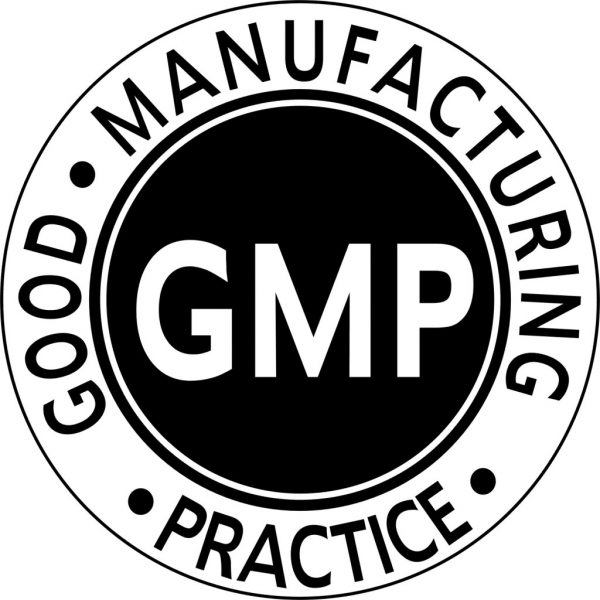
GMP Certification
A GMP is a system for making sure that products are consistently produced and controlled according to quality standards. It is designed to minimize the risks involved in any pharmaceutical production that cannot be eliminated through testing the final product.
GMP is an abbreviation for Good Manufacturing Practices. GMP is an initiative of the WHO. The main aim of GMP is to see to it that the products are good sufficient for utilization after the final outcome. GMP governs the product at each and every step of manufacturing.
Good Manufacturing Practice (GMP) is that part of quality assurance which ensures that medicinal products are consistently produced and controlled to the quality standards appropriate to their intended use and as essential by the marketing authorization (MA) or product specification. GMP is concerned with both production and quality control.
A Good Manufacturing Practices (GMP) certification scheme provides independent verification and certification that the basic manufacturing practices and prerequisites essential for the implementation of an efficient Hazard Analysis Critical Control Point (HACCP) food safety program are being followed.
What does GMP cover?
Record maintenance
Equipment Verification
Personnel Qualifications
Sanitation
Procedure Validation
Complaint Handling
Cleanliness
Benefits of GMP Certificate
Poor quality products can damage health.
GMP certification helps boost export opportunities.
GMP certification enhances consumer confidence in your products;
GMP certification helps to reduce operating costs due to rework and penalties due to non-compliance
GMP Certification improves the food safety management system
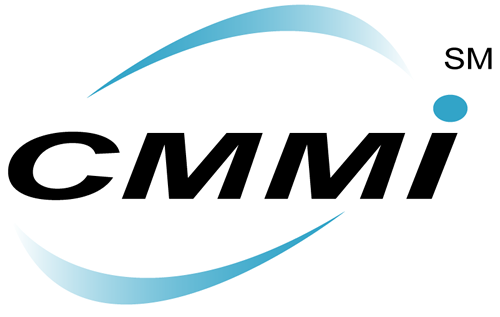
CMMI Certification
The Capability Maturity Model Integration, or CMMI, is a procedure model that provides a clear definition of what an organization should do to promote behaviors that lead to enhanced performance. With five “Maturity Levels†or three “Capability Levels,†the CMMI defines the most important ingredients that are compulsory to build great products, or deliver great services, and wraps them all up in a comprehensive model.
CMMI is comprised of a set of “Process Areas.†Each Process Area is intended be adapted to the culture and behaviors of your own company. The CMMI is not a procedure, it is a book of “whats†not a book of “hows,†and does not define how your company should behave. More exactly, it defines what behaviors require to be defined. In this way, CMMI is a “behavioral model†and well as a “process model.â€
Benefits of CMMI Certificate
Culture for maintaining Quality in projects starts in the mind of the junior programmers to the senior programmers and project managers
Centralized QMS for completion in projects to make sure uniformity in the documentation which means less learning cycle for new resources, better management of project status and health
Incorporation of Software Engineering Best Practices in the Organizations as described in CMMI Model
Cost saving in terms of lesser effort due to fewer faults and less rework
This also results in enlarged Productivity
On-Time Deliveries
Increased client Satisfaction
Overall enlarged Return on Investment
Decreased Costs
Enhanced Productivity